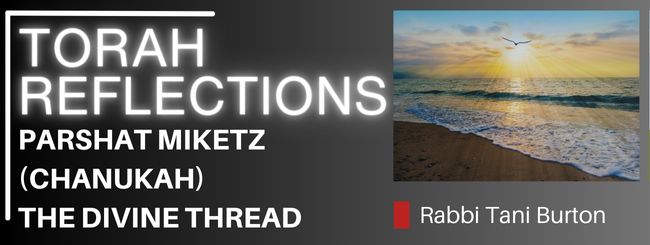Torah Reflections: Conversations on the Weekly Parshah
בס”ד
Integrating Torah into one’s life through reflection and conversation can be an incredibly fun and engaging experience. It’s a journey of discovery, where ancient wisdom and timeless teachings come to life in our daily experiences. Through reflection, we have the opportunity to dive deep into the rich tapestry of Torah, extracting profound insights and lessons that resonate with our modern lives. The joy lies in the ‘aha’ moments, those instances when a Torah verse or story suddenly connects with our personal challenges, aspirations, and values. And when we engage in conversations about Torah with others, it becomes an interactive exploration, where diverse perspectives and interpretations enhance our understanding. These dialogues often spark excitement and intellectual curiosity, making the learning process both enjoyable and fulfilling. Torah becomes a vibrant and dynamic part of our lives, offering not just guidance but also a source of endless fascination, connection, and growth.
NOTE: Don’t feel obligated to go through every source or answer all the questions—unless you want to. Even one source, or one question will give you plenty of material for discussion and meditation. Enjoy this!
Some thoughts about Parshat Miketz and Chanukah
In the biblical narrative of Genesis 41:25, Joseph’s interpretation of Pharaoh’s dreams serves as a profound revelation, emphasizing that the two seemingly distinct dreams—one involving cows and the other wheat—are, in fact, a singular message. This revelation centers on the divine plan for Egypt: seven years of abundance followed by seven years of famine.
Fast-forwarding to the festival of Chanukah, the parallel emerges in the original text, noting the duality of events— the Maccabean victory and the miraculous duration of the oil supply—that are ultimately considered “one.” This oneness does not merely signify a temporal connection but reveals the One. The victory of the Maccabees, achieved against a superior Syrian-Greek army, and the miracle of the oil, defying the natural limits of a one-day supply, are interwoven components of G-d’s Providence.
In essence, just as Joseph recognized the unity in Pharaoh’s dreams, the theme is echoed in the events of Chanukah, emphasizing the interconnectedness of the two miracles. The Maccabean triumph over the Seleucid army is part of a larger, divine plan. The miracle of the oil, shining beyond its expected duration, serves as a poignant reminder that both military victory and supernatural occurrences are manifestations of the same divine providence.
This parallel between the two dreams of Pharaoh being “one” and the two miracles of Chanukah being “one” thus extends beyond a mere thematic resemblance. It invites contemplation on the idea that G-d’s Divine Guidance of the world, expressed through seemingly separate events, ultimately reveals a coherence of purpose and intervention in the course of history.
Questions for discussion and personal reflection:
- Have you ever experienced situations in your life that seemed separate but, looking back, revealed a shared purpose or theme?
- Think about a challenging event in your life. How might seeing it as part of a larger plan change your perspective on its importance?
- How does the idea of G-d guiding your life influence the way you see your victories and challenges?
- Can you identify divine intervention in your own experiences? How has it shaped your life story?
- Consider different aspects of your life. Can you find connections between them that reveal a deeper sense of purpose? How might recognizing these connections bring more meaning to your life?
Shabbat Shalom
By Rabbi Tani Burton
© Copyright, all rights reserved. If you enjoyed this article, we encourage you to distribute it further.
Our blogs may contain text/quotes/references/links that include copyright material of Mechon-Mamre.org, Aish.com, Sefaria.org, Chabad.org, and/or AskNoah.org, which we use in accordance with their policies.
